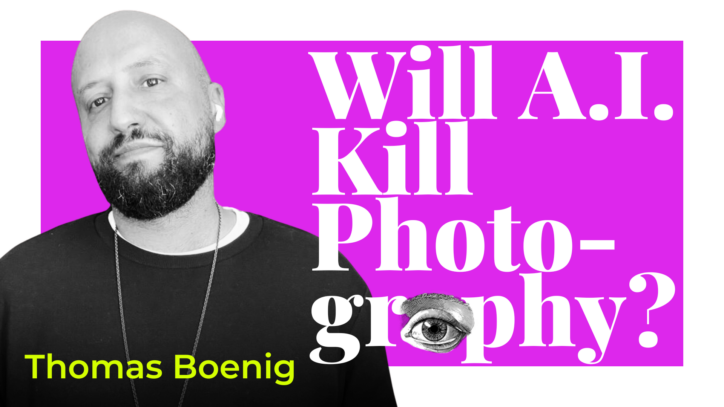


E28. Leica Camera on Choice, A.I. & Authenticity: Discover the Leica M11-P, the World’s First Camera with Content Credentials at Point of Capture with Leica’s Kiran Karnani
Leica Camera recently unveiled a groundbreaking new addition to their iconic rangefinder series that marks a watershed moment for trust and transparency between photographers and consumers. The new Leica M11-P is the world’s first camera to directly integrate content authentication based on the Content Authenticity Initiative (CAI) standard at the moment of image capture.
On the latest episode of Creativity Squared, we had the pleasure of speaking with Kiran Karnani, Vice President of Marketing at Leica Camera North America, on the Creativity Squared podcast about this pivotal announcement and the responsibilities of artists and consumers alike in our digital age.
Under Kiran’s leadership, the company launched the Leica Women Foto Project which is a program focused on promoting gender equity in photography. This project provides underrepresented photographers with financial grants, mentorship, equipment, and exhibition opportunities. This year’s award celebrates the power of perspective and photo essays inspired by the themes of reclamation, resilience, and rebirth.
In addition to her work with Leica, Kiran has been a guest juror for several notable events, including the ConnectHer Film Festival, Women Street Photographers Virtual Exhibition Call, and AlfaAwards. She has also organized and curated events at the Leica Women Summit, Palm Springs Photo Festival, Photoville, and the Photo Plus Expo. Kiran is also an active member of Chief, a network dedicated to supporting senior executive women in their leadership journeys.
In this episode’s conversation, you’ll learn about Leica’s recent product announcement of their M11-P which integrates content authentication according to the Content Authenticity Initiative (CAI) and the C2PA standard. We’ll dive more into Adobe’s Content Authenticity Initiative and the coalition’s important mission to help combat the threat of misinformation and help creators get credit for their work. As of this recording, the CAI has over 2,000 members including Leica Camera and Creativity Squared.
Leica is an industry-leading camera manufacturer, and in this episode, you’ll also learn more about its pioneering history and how Leica is supporting the Committee to Protect Photo Journalists. In a wide-ranging conversation, Kiran and host Helen Todd also touched on the importance of diverse perspectives, the responsibility of image-makers, the co-creation of culture, photography in the age of A.I. manipulation, and much more.For a recap of key insights from this thought-provoking discussion, continue reading below.
“One single image has the power to incite, to inflame, to spark conversations…so the integrity of the content…is so critical.”
Kiran Karnani
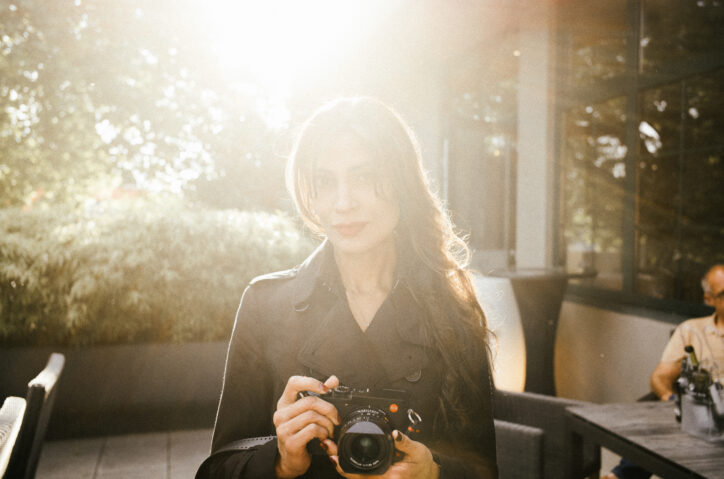
Kiran’s lifelong passion for photography was sparked by her father, who believed every moment mattered and advocated for “shaping time” — an ideal that Kiran carried with her.
After earning her degree, Kiran’s journey led her to Leica Camera in 2015, where she soon became the Head of Marketing for North America.
Over the years, she has spearheaded impactful initiatives like the Leica Women Foto Project to uplift underrepresented photographers.
“It starts with family and has been connected to community, shared through the Leica lens.”
Kiran Karnani
As Kiran recounted her origin story, she highlighted Leica’s pioneering history and pursuit of “photography in its truest form.” This dedication to authenticity continues to shape Leica’s identity today.
Leica’s inventions transformed photography from a studio-bound craft to an accessible art form. The company brought the first handheld 35mm camera to market in 1925, freeing photographers to capture life as it unfolded.
Iconic images that have shaped our visual lexicon, from Robert Capa’s “Falling Soldier” to Steve McCurry’s “Afghan Girl,” were shot on Leica cameras. By placing the power to document reality into photographers’ hands, Leica paved the way for street photography and photojournalism as we know them today.
This tradition of innovation endures with the new M11-P model. As Kiran explained, Leica continuously evolves just enough to meet today’s needs while remaining faithful to photography’s essentials.
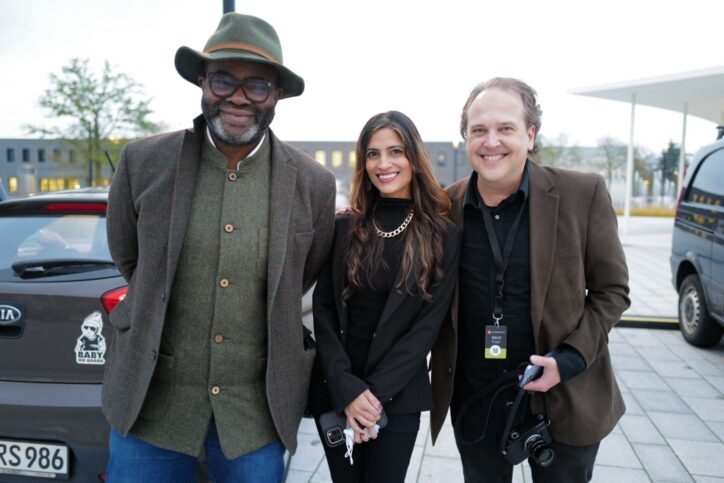
Leica: A Legacy of Authenticity
A defining thread in Leica’s evolution under Kiran’s leadership is a drive to further democratize visual storytelling by amplifying diverse voices.
As Kiran stated, Leica recognized opportunities “to diversify our audience” and spotlight underrepresented groups. This realization birthed initiatives like the Leica Women Foto Project in 2019.
By platforming talented women photographers, their unique visions and angles on shared human experiences expand our understanding. Kiran explained that “the shape of a story is impacted through perspective.”
Leica also fosters new generations of photographers through programs like its “Truth in Focus” auction to benefit the Committee to Protect Journalists. Initiatives like these promote freedom of expression and responsibility in image-making.
According to Kiran, “In recognizing how the shape of a story can start to shift and change through those diverse perspectives” we gain clarity.
“Reportage photography is a part of Leica’s DNA. We are committed to authenticity.”
Kiran Karnani
The discussion moved on to profound questions about society’s co-evolution with technology.
As Kiran observed, the data and media we consume shape our perception, which in turn informs our actions, beliefs, and culture. She underlined the importance of carefully discerning sources in today’s landscape.
Specifically, thoughtfully verifying integrity before spreading content is crucial. Universal adoption of standards like Adobe’s Content Authenticity Initiative (CAI) will enable trust across digital media.
(We previously spoke to Andy Parsons, head of the CAI, on this show — listen to the episode here.)
Kiran also highlighted photography’s power to reveal unfamiliar vantage points. Images can profoundly expand our frame of reference by escorting us into the worlds of others.
By capturing and integrating diverse perspectives through mindful image-making, we can move humanity forward with empathy. As witnesses, our cameras testify to unfamiliar truths, informing our culture.
Kiran emphasized that ethics and human values must remain paramount as technology evolves. While tools rapidly change, principles matter most. Leica creates new cameras based on authentic user needs, not just progress for its own sake.
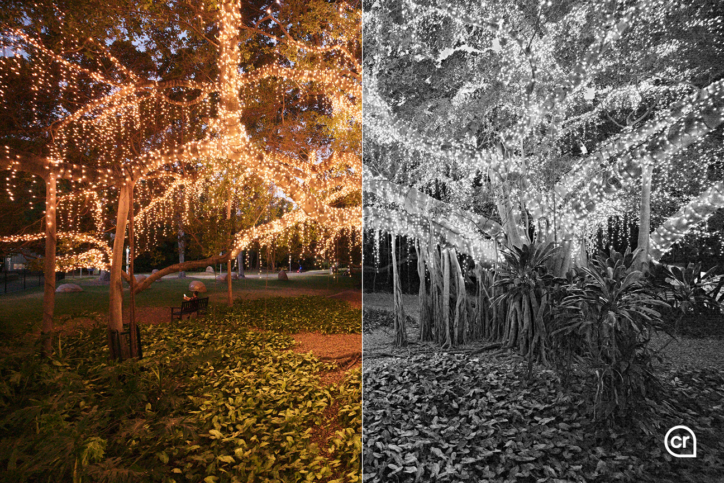
“The launch of the M11-P absolutely serves as this watershed moment because it provides, for the very first time, the opportunity, the ability, to attach digital rights at the point of capture.”
Kiran Karnani
Leica’s commitment to authenticity manifests through its pioneering new M11-P camera. As the world’s first model to directly integrate content authentication, it bridges physical and digital realities.
The M11-P preserves photography’s fundamentals of form and function. Its minimalist aesthetic fuses cutting-edge encryption technology with discretion and portability, and by seamlessly adding certified digital credentials at capture, Leica enables photographers to verify their work without hindering creativity.
As Kiran explained, this breakthrough provides a vital layer of transparency in our digital era.
The Leica M11-P also offers consumers a portal into the lineage of an image through universal verification platforms. By giving insight into an image’s journey, Leica reinforces public trust.
As Kiran articulated, shining a light on provenance empowers both artists and audiences. The M11-P embodies Leica’s continual pursuit to elevate photography’s role as a conduit to truth.

The Future of Visual Storytelling
Emerging tools like A.I. expand possibilities. However, Kiran emphasized that ethics and human values must drive innovation.
While technology evolves rapidly, timeless values matter most. Leica creates new cameras not simply because they can, but to meet photographers’ authentic needs and advance the art of storytelling and visual expression.
Companies have an obligation to develop new media responsibly. Universal standards will allow us to leverage technology while safeguarding human dignity and truth.
Kiran also touched on the importance of education so all may benefit from technological change. Leica’s photo grants, workshops, and mentor programs are small steps toward democratization.
“Digital content informs the way that we make decisions, how we act, how we react, the belief systems that we collectively agree on.”
Kiran Karnani
As the conversation progressed, Kiran and Helen delved into the profound impact of photography on the way people perceive and interact with the world.
They stressed the critical importance of maintaining the integrity of content consumed in the digital age.
Kiran and Helen also discussed the concept of intentionality in photography, emphasizing the need to be more aware of one’s surroundings and to take time to absorb what is being seen.
Leica M cameras, particularly the rangefinder series, encourages this intentional approach by making photographers take their time to capture the decisive moment. “The camera actually invites you to do that in a really beautiful way as you’re deciding what to capture and what not to capture,” shared Helen.

Witnesses of Our Worlds
A poignant theme that emerged during the conversation was the idea of photographers as witnesses to the world around them.
“There’s this space between bearing witness and the act of creating, Kiran explained, “and in that space, we choose how and when to shape time into a defining moment.”
When asked what she hopes listeners take away, Kiran shared a meaningful perspective on the role of visual storytellers: “In essence, it’s moving through the movie through our life, we are witnesses. We are the silent witnesses of our worlds. And with the camera in hand, we can choose to not only witness but to also record life.”
Kiran explained that bearing witness carries a responsibility to document the moments we experience. In doing so, we shape the way future generations see and interact with the world.
This sentiment resonated with photographer Chaz Neill, whose take on being a witness Kiran shared: “The world deserves witnesses. And these images are my testimony.”
As witnesses wielding cameras, photographers testify to the truths of unfamiliar worlds. Their images inform culture and expand perspectives.
“Cameras are a tool to help express culture, to create art. And the quality of that art is really based on the quality of that data…To experience data in its truest form…gives us agency to determine whether or not we trust it.”
Kiran Karnani
Overall, this far-ranging, insightful conversation underscored photography’s unique power to shape how we see the world, inform culture, and build understanding.
Throughout the discussion, Kiran emphasized our collective duty as image-makers and consumers to uphold ethics, verify truth, and elevate diverse perspectives. Leica’s groundbreaking new M11-P camera, embedding content credentials directly into each photo at the point of capture, represents a vital step towards transparency.
As we co-create culture in a digital age, Kiran compelled us to approach technology thoughtfully, never losing sight of humanity.
Kiran concluded by highlighting Leica’s “Truth in Focus” auction of iconic cameras and prints to support the Committee to Protect Journalists. She encouraged listeners to bid on items from luminaries like Jim Marshall, embracing the opportunity to own a piece of history while advancing press freedom worldwide.
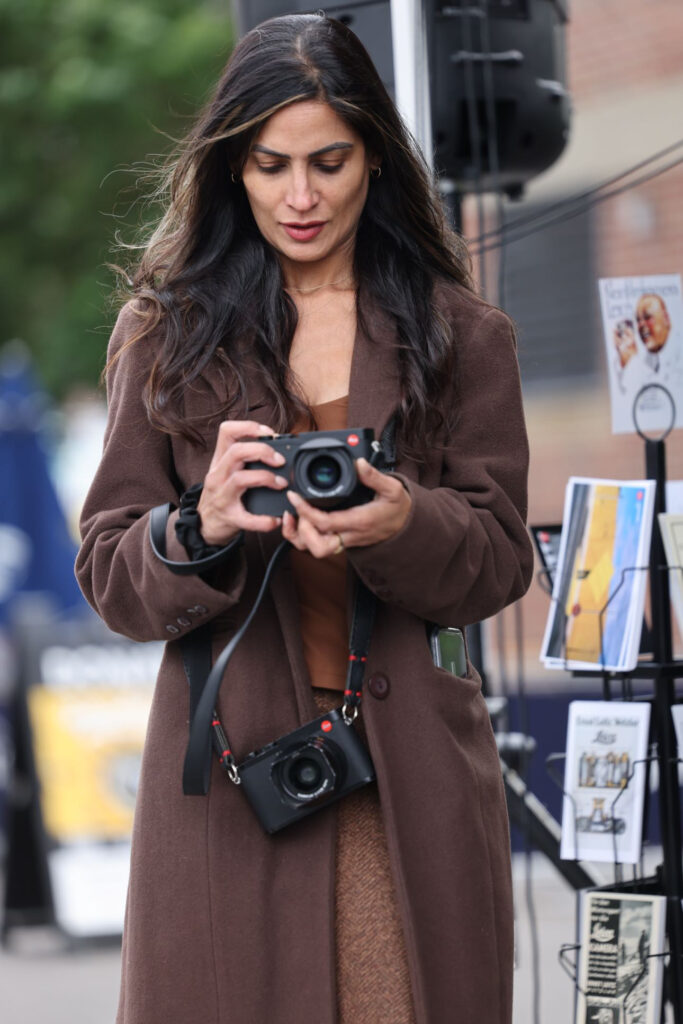
Between Seeing and Creating is the Freedom to Choose
Kiran left us with a reminder that in the space between seeing and creating is the freedom to choose how we capture defining moments. She also reminded us to carefully choose how we interact with the content around us. In that discernment lies freedom.
As witnesses, this responsibility rests on our shoulders.
“Through this co-creation of visual expression, of art, of culture, we evolve humanity in a most beautiful way.”
Kiran Karnani
We all shoulder the collective duty to verify, reflect, and co-create culture with care. Our choices ripple outward.
By upholding ethical standards, prioritizing diverse voices, and finding unity through creativity, we can steer emerging technologies toward human progress. Leica’s next chapter, heralded by the M11-P, offers hope for this future.
Our cameras grant us the power to shape time, record reality, and reveal diverse truths. How we choose to see the world around us matters deeply, as Kiran so eloquently expressed. Our images testify to who we are.
To learn more about Leica’s cameras, educational initiatives and partnerships, visit their website at leica-camera.com. You can also follow Leica (@leicacamerausa) and Kiran (@kiran.karnani) on Instagram.
Links Mentioned in this Podcast
- Connect with Kiran on LinkedIn
- Follow Kiran on Instagram
- Follow Leica Camera on Instagram
- Leica Camera
- Content Authenticity Initiative (CAI)
- Creativity Squared Ep.7 with Andy Parsons
Continue the Conversation

Thank you, Kiran, for being our guest on Creativity Squared.
This show is produced and made possible by the team at PLAY Audio Agency: https://playaudioagency.com.
Creativity Squared is brought to you by Sociality Squared, a social media agency who understands the magic of bringing people together around what they value and love: http://socialitysquared.com.
Because it’s important to support artists, 10% of all revenue Creativity Squared generates will go to ArtsWave, a nationally recognized non-profit that supports over 150 arts organizations, projects, and independent artists.
Join Creativity Squared’s free weekly newsletter and become a premium supporter here.
TRANSCRIPT
[00:00:00] Kiran Karnani: We at Leica have not expressed a judgment on AI. It’s a choice. The way that one chooses to edit the photos, the way a content creator chooses to visually express themselves through photography is a choice. What we stand for is the ability to provide trust and transparency to the process to help inform how we make choices.
So the camera, the M11 P, and its embodiment of content credentials affords the choice to make a determination on holding that digital signature, to provide consumers an opportunity to view the history of a file to make those informed choices.
[00:00:55] Helen Todd: Kiran Karnani is the vice president of marketing at Leica Camera North America.
Under her leadership, the company launched the Leica Women Foto Project, which is a program focused on promoting gender equity in photography. This project provides underrepresented photographers with financial grants, mentorship, equipment, and exhibition opportunities. This year’s award celebrates the power of perspective and photo essays inspired by the themes of reclamation, resilience, and rebirth.
In addition to her work with Leica, Kiran has been a guest juror for several notable events, including the ConnectHer Film Festival, Women Street Photographers Virtual Exhibition Call, and Alpha Awards. She also organized and curated events at the Leica Women’s Summit, Palm Springs Photo Festival, PhotoVille, and the PhotoPlus Expo.
Kiran and I met Back in 2015 when she started at Leica Camera, north America, and my social media agency was the agency of record for the global Leica camera brand. We’re also both active and fellow members of Chief, a network dedicated to supporting senior executive women in their leadership journeys, and I couldn’t be more excited to have Kieran on the show today.
In this episode’s conversation, you’ll learn more about Leicas recent product announcement of their M 11 P, which is the world’s. First camera with content credentials built in and marks a watershed moment for trust and transparency for photographers and consumers. We’ll dive more into Adobe’s content authenticity initiative and their important mission to help combat the thread of misinformation and help get creators credit for their work.
Today, the CAI is a coalition of nearly 2000 members, including Leica and Creativity Squared. Leica is an industry leading camera manufacturer, and in this episode, you’ll also learn more about its pioneering history, how Leica is supporting the Committee to Protect Photojournalists, the importance of widening our perspectives through the lenses through which we experience the world, and the responsibility for us all in this pivotal moment of time to co-create culture.
Enjoy.
Welcome to Creativity Squared. Discover how creatives are collaborating with artificial intelligence in your inbox, on YouTube, and on your preferred podcast platform. Hi, I’m Helen Todd, your host, and I’m so excited to have you join the weekly conversations I’m having with amazing pioneers in this space.
The intention of these conversations is to ignite our collective imagination at the intersection of AI and creativity to envision a world where artists thrive.
Well, Kiran, welcome to Creativity Squared. It is so great to have you on the show.
[00:04:00] Kiran Karnani: Thank you so much, Helen, for having me on.
[00:04:02] Helen Todd: Yeah. Karen and I met back in 2015 when my social media agency, socially squared was the social media agency of record for like a Cameron and Karen came on to work for like a camera USA, or I should say North America and has worked up the ranks to be.
The VP of marketing. And we’re so excited to have Karen on the show today. We’re big fans of like a, in general, that’s come up a lot of times on the show, but there’s a very exciting announcement that happened recently that we’ll get into but Karen, for people who are meeting you for the first time, can you introduce yourself and kind of share your origin story in your own words?
[00:04:39] Kiran Karnani: Absolutely. And I’m so glad that we’re having a discussion about origin stories and pleased to share mine. My journey with photography actually started with my father, who really was an advocate for shaping time because he believed that every moment mattered. Moving forward into 2015, a door opened for me at Leica camera and worked my way from 2015 to about 2018 or 19 to lead the marketing for North America.
Helen, you and I met as our social media footprint was developing with Leica globally, and you have been so instrumental in shaping the way that Leica is has connected to community through social media. In 2019, the brand recognized that we had opportunities to really diversify our audience and with the brand support, we launched the Leica Woman Foto Project and it’s an initiative we’ll talk through later in the podcast.
But essentially that is my origin story. It starts with family and has been connected to a community shared through the Leica lens.
[00:05:51] Helen Todd: It’s so great to have you on the show. And since you’ve joined like you could really see the impact that you’ve had in really your love of amplifying women’s voices and underrepresented voices.
So it’s so good to, to see the impact that you’ve had on the brand and the community as well.
Kiran Karnani: Thank you.
And since you mentioned the women’s photo grant, I’d love to kind of. Talk about that a little bit, because you are passionate about supporting women, and this is one of the great initiatives. The grant just closed but the winner will be announced soon.
So can you tell us a little bit about that and the theme this year?
[00:06:25] Kiran Karnani: Absolutely.
So again, the Like a Marine photo project was launched in 2019, where we recognized that the shape of a story is impacted through perspective. And oftentimes perspectives that we were interacting with were very homogenous.
With that, we explored opportunities where we can create a platform for diverse perspectives to be seen, to be heard, to have their stories amplified through Leica channels. So we launched the Leica Women Foto Project, offering applicants an opportunity to have their work seen by a group of world renowned jurors who have made a significant impact in the world of photography.
Three applicants were selected to receive 10,000 each and a Leica camera to help progress their stories. Since 2019, the award has expanded to the to North America that includes Canada and Mexico, the United Kingdom, and obviously the United States, where we’re now awarding four women a Leica camera set and $10,000.
We’ve provided mentorship opportunities like a women’s summit where we bring together a collective where. Photographers can come together and really explore issues that are relevant to the way that they experience the world of photography. So on March 18th, on International Women’s Day, we’re going to announce the the new awardees and we invite you to stay tuned.
[00:08:00] Helen Todd: For all of our listeners, I’ll be sure to put the link to learn more about the women’s photo grant and projects in the episode podcast. Be sure to sign up for the, like a camera newsletter to follow along and creativity squared newsletter. I’m so excited to see who the winners are and I’m not jealous about the jurors having to make the final decision at all.
Cause I know that’s always a tough job with so many great candidates and participants.
[00:08:27] Kiran Karnani: Thank you, Helen. And if it’s okay, I’d love to share a little bit about Leica camera for those who may not be aware of who we are as a brand.
[00:08:35] Helen Todd: I would love that. Please do.
[00:08:37] Kiran Karnani: Excellent. So you may not know who Leica is as a brand, but you have certainly experienced Leica through the iconic images from the sailor and the nurse in Times Square to the photograph of Muhammad Ali with his fist extended, you know, iconic images throughout time have been shaped through the lens of a Leica more than probably any other camera in the world.
And the reason this came to be is that Leica brought photography out of the studio and into the street, really paving the way for documentary photography. We were the first to introduce the 35 millimeter format camera in market, which enables photographers or just anybody to go out and record moments in their time, moments in their own history. And this kind of segues into our conversation today. Repertage photography is part of Leica’s DNA. We are committed to authenticity, to a reduction of the essentials. If you ask a child to draw a picture of a camera, you’ll likely see this rectangular box, a little viewfinder, a circle for a lens.
And they’ve essentially drawn a Leica camera. We focus on just the essentials of what is required to make a photograph. It’s the aperture, the shutter speed, the ISO. That’s all you really see on the design of the camera. So our evolution is only enough to support photographers in today’s requirements.
But really pare it down to just what is the essential of what they require to make a photograph. We’re committed to reducing distraction between the photographer and their subject, to being discreet so that the photographer melts into their environment to very discreetly capture a moment. And all of that lends itself to authenticity in the way a photograph is made.
Authentic to the way the photographer chooses to see and interact with their environment.
[00:11:00] Helen Todd: I love that. Thank you so much. And I have a, like a monochrome and it’s my favorite. And one of the things that it was so counterintuitive when it was introduced, because it’s a digital camera that only shoots black and white.
And the. images that come out of it are just phenomenal. But I think it’s also a great example of Leica being very pioneering and kind of going against the grain. And from the introduction of the 35 millimeter camera to all of the different innovations, you know, over the years and the rich history of Leica, you really have been a pioneering brand.
And that kind of tees us up for the big announcement that happened last week is the introduction of the new, like a M 11 P that now includes content credentials at the point of capture to protect the authenticity of the images. So, I will let you take it away and tell us why this is such a monumental moment for Leica and the photography industry itself.
[00:12:00] Kiran Karnani: Absolutely. And before we get there, I’ll take one step back. So with the introduction of the 35 millimeter format, a pioneer of its time, completely unheard of, to create this little compact box and bring it out into the street. And then we also a few years ago introduced the M10D, which is a digital camera without an LCD screen.
Why? Why would a camera brand choose to put into the market a digital camera where you can’t see the images that you’ve just created? And it goes right back into authenticity. We want you to experience photography in its truest form. Truest, most authentic form. And by creating a digital camera that affords the photographer the opportunity to experience analog photography feels to be intuitive, feels to be in line with the authentic way of making a photograph.
To your point earlier, we launched the monochrome cameras that can only record light. Again, the reduction to the essentials, to the most authentic way to create a black and white image. Of course, you can transpose the image using a color camera, a camera that sees color. But, if you remove the color filter altogether, where you’re only recording light, it lends itself to a very pure way of creating black and white photography.
And on October 26th, we took one step further with the launch of the M11P. For those who may not know, The Leica M Series includes a P variant. The P variants remove the Leica red dot logo, honing back to the discretion in photography, being a part of the background and not really showing up into a moment with a blaring red dot.
So it offers this discreet way of seeing. And then it also is the first camera, first commercially available camera in the world to embody content credentials. Now, let’s talk a little bit about “what is content credentials.” It is a a digital signature, a digital nutrition label where photographers can attach their digital signature at the point of capture to their file.
Now, this content credentials offering is part of a larger initiative, so we can talk a little bit now about content. The content authenticity initiative, which was co-founded by adobe and now has, I think, about 2,000 members as of this recording now like, and I know that Creativity Squared are both members of the content authenticity initiative.
The initiative serves as a collective of members who are working together to mitigate misinformation with through digital content. And we’re doing this through providing a verifiable platform where digital content can be verified for authenticity through an open source platform. We do this through a standard called the C2PA standard.
Which stands for the Coalition for Content Provenance and Authenticity. We are so honored and pleased to introduce the M11P as the world’s first commercially available camera to embody this standard.
[00:15:50] Helen Todd: I’m so excited. Congratulations on the launch of this camera. We’ve had Andy Parsons, who’s the head of Adobe’s content authenticity initiative on the show.
So, we’ll be sure to link that interview in the episode notes. But this really is a watershed moment for cameras in that you’re really leading the industry because one of the things that he had mentioned is when it comes to the content credentials and the digital signatures, really, we need to embrace one standard for it to be really meaningful, you know, for all consumers of the internet, really.
So, can you talk to us about why it was important to like us specifically, you kind of mentioned how it’s true to the authenticity of the brand and how you, maybe the hope for the industry to adopt it too, and how you’re leading the way as an industry leader on that front.
[00:16:45] Kiran Karnani: Absolutely. The launch of the M11P absolutely serves as this watershed moment because it provides for the very first time the opportunity, the ability to attach digital rights at the point of capture.
Now, the Content Authenticity Initiative believes that the the most impactful time to attach those digital rights is at that point of capture. When we look at the definition of authenticity, we come back to the origin story. An origin story that has that is founded by evidence. With the M11P, photographers have now the ability to assert their digital rights.
They are able to connect their copyright, if you will, to their images and afford consumers an opportunity to verify that piece of digital content through the open source platform.
[00:17:47] Helen Todd: And can you tell us why it’s really important specifically for photojournalists… why it’s so important, especially in this age that we find ourselves in, of the misinformation and disinformation that takes over our feeds oftentimes.
[00:18:04] Kiran Karnani: Absolutely. And you, I mean, you hit the nail right on the head right there. Photojournalism, in its truest form is rooted in trust and transparency. As consumers, we expect that the media that we consume through news outlets, through photojournalists, through any journalism, is rooted in trust without that level of trust, we lose sight of how we co-create culture, how we shape our belief systems and how we inform our actions. With that, providing photojournalists an opportunity to choose to attach content credentials to the images that they create, and then also record every iteration of modifications through a cryptographically secure manifest? Is essential for consumers to verify if the content that they’re consuming is trustworthy.
[00:19:09] Helen Todd: Well, it’s so great to hear everything that you’re doing with an 11P. And I guess I also want to just ask and punctuate the point of why it’s important to have one standard for the entire industry and also maybe like, dive in a little bit deeper of how these content credentials actually work.
[00:19:29] Kiran Karnani: Absolutely. You know, and with the content authenticity initiative comprised of nearly or maybe more at this point, 2000 members and members include everyone from Creativity Squared, Leica, BBC, The New York Times, Adobe, and so many more, offering one standard further underscores trust, transparency, to the integrity of the digital content we are consuming.
Why is this important? You know, as we are working together to mitigate misinformation, in the content that we’re consuming and Helen, you know, this is beyond just, you know, visual expression. This encompasses audio recordings as well. Digital content informs the way that we make decisions, how we act, how we react, the belief systems that we collectively agree on.
One global standard to provide consumers the opportunity to verify the integrity of the digital content that they consume helps us make informed choices. On how we believe the content that we’re experiencing, that we are consuming the choices that we make to interact with the content and with humanity, and we’re doing this by adding a verifiable layer of trust and transparency.
To content online through the C2PA standard.
[00:21:06] Helen Todd: And the way that it actually works, because I know it’s a little hard for some of our listeners who can’t see how this how this looks is within a photograph or any image, or as you mentioned file that there’s like a watermark where the consumer has the option to click on and get more information like a drop down menu to see how much it’s been edited, whether that’s AI, traditional Photoshop, or otherwise. And I think one thing that you said was that was really important is just choice that you give the photographer, the choice of whether to add the content credentials or not. And then it’s also about the choice of the consumer, whether if they want to dig in to get more information about the image.
But I know choice is really important. So I don’t know if you want to expand on the importance of choice related to this initiative.
[00:21:59] Kiran Karnani: You know, this is an end to end solution from the point of capture to publication, to the way that images are inspected for and verified to determine trust. So, let’s start with the content credentials in the menu system of the M11P, the content credentials is automatically turned on. A photographer would choose to turn off content credentials, right? So that’s the first step. Content credentials is turned on. So as the photographer is making an image with the content credentials turned on, the photographer also chooses whether or not to add their name to the credentials, and that’s important because in areas where there is sensitivity to the content that is shared specifically in photojournalism, we’re working to protect the photographer and their identity as they’re publishing images.
So when the content credentials is turned on. Photographer the image is secured with a digital signature. This is cryptographically sealed on a manifest connecting the photograph with the identity of the photographer, or again, it can be chosen to be taken off. And then that is secured further with a digital signature offering a digital nutrition label.
You mentioned this drop down menu and that is served by a pin that is hopefully going to be widely adopted through other platforms. You’ll see a CR avatar with images made with content credentials enabled. When content credentials is enabled, a published file will offer an icon, a content credentials icon, a pin if you will, where consumers can click on the icon to view the digital nutrition label.
Consumers are also enabled and empowered to take an image and drop it into the open source platform to inspect it, to validate it before determining whether or not they can trust the piece of content. This is important because this leads to a growing adoption for content credentials. It really invites more publishers, more brands and organizations to adopt content credentials to ensure that our technical innovations are rooted ethically.
[00:24:27] Helen Todd: One thing that, and actually in Hard Fork, they talked about digital signatures and a recent episode, and one of the complaints against digital signatures is, oh, well, you can just screenshot photographs, which has always been, you know, an issue with photographers and their work getting lifted online, but even within the the open source standards your images are protected from screenshotting because I think.. using OCR technology, like they’ll, they can take your image if you put the content credentials in the cloud and use that as a baseline to still match it with images that have been screenshotted and uploaded. So, the issue are one of the critiques about these things.
Being screenshot and, you know, working around it. Actually, they’ve built that into the tech, which I find that super fascinating and hopefully really good news for the photographers who are listening and have that as an issue.
[00:25:27] Kiran Karnani: No, absolutely.
You know, and with content credentials, we are protecting the photographers credit to the work that they’re creating.
So it provides transparency at the point of capture. Asserts the photographer’s digital rights and the content that they’ve created and it affords consumers with the opportunity and the ability to inspect and verify images for their integrity. You know, Helen, it’s really exciting. And in this time of rampant misinformation, the sovereignty, the agency for consumers to be able to verify content is absolutely tremendous.
[00:26:06] Helen Todd: Well, I completely agree. I mean, as we’re talking, you know, there’s a lot happening in the world and we’re living through you know, propaganda and misinformation and disinformation where everyone, honestly, we’ve got world elections, and the US elections next year where everyone should really take a beat, question what they’re seeing in their feeds not taking.
Anything for face value and these tools allow consumers to get more insight on what they’re seeing. If it’s valid or not. And I think it’s really important from the journalism and photojournalism. When it comes to maybe other genres of photography, more of the conceptual or commercial, some photographers might not want to reveal all of the edits or how the image has been manipulated, edited or, you know, however, you know, the creative expression happens. But they have the choice to, if they want to, so you can reveal as much or as little as you want. And I think, again, it’s just so important for choice and empowerment. And I guess one thing too, cause not everyone can go out and get the new range finder M11P.
But, this is something that even without having the content credentials at the point of capture that any photographer can add with the standards too. So do you want to talk about how for the non like a M11P owners how they can start engaging with these tools right now?
[00:27:32] Kiran Karnani: Absolutely. And this is done through some of even the Adobe product portfolio. The photographers can choose to add content credentials through the editing process. What makes the M11P such a pioneer is that it is, again, the first where you can add that credential at the very point of capture, at the point of the birth of the story of a file.
I feel that’s just a such an important pioneering moment for the world of photography, for the way that we express ourselves through photography. Yes, we can absolutely add those credentials as files are being edited as they’re going through their lifespan, but to have those credentials at the provides this sort of a birth certificate, if you will, for visual expression.
[00:28:30] Helen Todd: And I’ll be sure to link all of these into the episode description too. And one thing that you had mentioned when we were talking ahead of the interview is how this fits into like, as history of corporate responsibility. And before I hand it over to you to let you expand on that, I also just want to like commend Adobe and Leica because, you know, we talk a lot about AI and intentionality on the podcast.
And, you know, these are two companies that are really leading the way of ethical AI and how to empower creators, and using AI as a co pilot and to amplify and giving choice to the photographers and the consumers. So it’s it’s so great to have companies that are baking, you know, ethics into the design of their products and whatnot.
So, I just want to commend you on that. But also, you know, let you expand on what it means for like, in the history of your corporate responsibility too.
[00:29:32] Kiran Karnani: Absolutely. And I’d love to just take a step back on what you had just shared about the ethical use of AI. We at Leica have not expressed a judgment on AI.
It’s a choice. The way that one chooses to edit the photos, the way a content creator chooses to visually express themselves through photography is a choice. What we stand for is the ability to provide trust and transparency to the process to help inform how we make choices. So the camera, the M11P, and it’s the embodiment of content credentials affords the choice to make a determination on holding that digital signature to provide consumers an opportunity to view the history of a file.
To make those informed choices, and it might segue here on why those choices matter. Data points and the integrity of data points, the way that we consume data, integrate data and express data lean into how we create art and culture. And cameras are a tool to help express culture, create art. And the quality of that art is really based on the quality of that data.
With that, if we’re able to experience data in its truest form, to ensure that the data that we consume gives us agency to determine whether or not to trust it. The quality of our art starts to shift, starts to change, starts to shape the way that we behave, the agreements that we make on our value systems.
And so with like us commitment to corporate social responsibility, we’re committed to providing tools that serve photographers most authentic, truest way of seeing and expressing art. I’ll go back into a bit of our history when we launched the first Leica in the year 1925. Ernst Leitz did not launch it for his own economic prosperity.
He launched it because he saw that the camera would provide an economic support to his employees. This really paved the way to the backbone of who we are as a brand of our own value system. Why? Trust, transparency, why human connection is so important to everything that we do. And you see this in the way that we foster our community to the diverse initiatives, including the like a woman photo project, including our new truth in focus option.
This option is, has been created to support the committee to protect journalists. And we found that this organization is so aligned with who we are as a brand. Because photojournalism, journalism really impacts the way that we see, we shape moments, how we interact with humanity, with community, to create art that shapes the way we interact with our world.
It’s part of our evolution, freedom of expression without fear of reprisal. This ties perfectly into our commitment with the Content Authenticity Initiative, where we underscore the impact of truth and transparency in digital content. We encourage everyone to validate the integrity of the content they consume, to have the awareness that these tools exist.
Whether it’s through an M11P or the Content Credentials Inspect and Verify platform. We all have a way to choose to make choices that are informed with the open source tools available today. And as Andy Parson shared in his last conversation with you, Helen, there are platforms and tools available for everyone to make those choices.
It’s simply about awareness and adoption.
[00:34:01] Helen Todd: And this conversation hopefully is helping bring more awareness to the standards and the credentials cause they’re so needed in this moment in time. ‘Cause reality already kind of starts feeling like a Sci-Fi film and it’s only going to get more blurred with all of the fun AI tools out there too.
But, you know, really distinguishing Really, specifically when we come to photojournalism, the difference between images, you know, that are manipulated or not are so, so, so important in this moment in time. Well, one thing that you mentioned that I’d love to pivot into a little bit is how photography and art shapes culture and how we’re all co-creating culture in this moment in time.
Oh, and it sounded like, you know, the announcement is very fresh and it’s so great to hear about it here on creativity squared and how photographers that have received the news what’s been the reaction to the M11P and the the content credentials that capture.
[00:35:08] Kiran Karnani: So two separate questions, and I love them both.
So, the response to the M11P is wonderfully positive as most of our M launches are. The M holds such a dear face and place in the world of photography because of its history as the preferred tool for many photojournalists. You know, as we discussed earlier, I would say most of the iconic images that we have experienced in the world have been made with a Leica M camera and perhaps a camera.
Most of the iconic images in the world have been made through the M camera and a lens. It’s no wonder that the M has such resonance with the world of photography content creators, but this added layer of the embodiment of the content credentials really serves to hold dear our commitment to the photographers that choose to see through this very unique way, through this very unique lens of a rangefinder camera.
The content credentials empowers both the photographer and the consumer. And so on both ends of the spectrum, we’re seeing tremendous resonance for the embodiment of the content credentials.
[00:36:31] Helen Todd: Very cool. Well, I’m sure a lot of listeners want to add this to their holiday shopping list or Christmas present list for those who celebrate Christmas.
Well, one of the things that you mentioned in the conversation is how photography and art co-create culture. And I’d love to kind of pivot and dive into, to this a little bit cause it’s such an interesting time in the world when it comes to art with the acceleration of these AI tools that enable new forms of expression.
And for those who don’t follow Kiran online, I definitely will include links. She posts such beautiful posts on Instagram, very poetic. So I’m actually going to read one of her posts for you to expand on — just because it’s so beautifully written. So I forget what the data is from this, but it’s:
“In a single fact rests a universe of truths. Each colored by the pigments of our experiences, beliefs, and judgments. Through these lenses, we birth the visual symphonies that evolve culture and underscore the impact and importance of diverse perspectives, a visual expression to harmonize our own unique song, to sing with light, to paint with shadows, to create our own narrative of this fact of existence is both a choice and a responsibility.”
[00:37:52] Kiran Karnani: Thank you, Helen, for sharing. Culture helps shape behavior and it’s really infused by the data that we consume. What excites me personally about the Content Authenticity Initiative is it really helps provide agency to how we consume data. And this filtered through our own personal lens, our own personal set of experiences, our belief systems, our values helps to integrate data in its purest form so that we can not only change, perhaps our own filter — but embody it, integrate it, and express it in a very authentic way. And through this co creation of visual expression, of art, of culture, we evolve humanity in a most beautiful way. But it takes the awareness, it takes the effort and the responsibility and accountability to take time to really identify if the data that we’re consuming is trustworthy, is in resonance with our own life experience, so that we can create art and inform the next generation of storytellers.
[00:39:17] Helen Todd: On another thing that I think just punctuates how important the women’s photo project is too, is not only you know, the data that we’re capturing through our own lens, but to be exposed to other perspectives and how, you know, others are seeing the world to widen our own, you know, personal lens.
And there’s actually, I forget the name of the woman. She is a professor that has done kids books and how she describes the kids books. That’s really important for both mirrors and windows, I think. So to have content that reflects you back in the world, but also windows into other people’s worlds.
And I feel like photography is such an intimate way to see into. You know how other people are seeing the world in that regard in this co creation that we’re all doing together.
[00:40:07] Kiran Karnani: Absolutely. And that was again one of the seeds that birthed the Leica Woman Foto Project is in recognizing how the shape of a story can start to shift and change through those diverse perspectives.
One perspective can look like this in every And in one single fact, in the moment that you bring another perspective, and all of a sudden your shape starts to shift, starts to evolve, starts to progress. It’s a progression and evolution in a most human way really deserves diversity in the perspectives that we bring to the table.
You know, as you read earlier, one fact, one fact can birth myriad shapes, can birth myriad truths. I personally believe that truths can take different shapes based on that single fact, and that bringing in diverse perspectives enables us to determine what those truths look like and what’s in resonance with ourselves before we express, before we integrate, before we make a choice on how we want to interact with that truth.
And culture is that lifeline, is the lifeblood of our humanity. And we all have a sense of, or we all have the opportunity to be responsible for co creating that culture.
[00:41:31] Helen Todd: You know, I think part of the co creation of culture too, going back to choice and this conversation, is. You know, from a consumer, cause you know, we’re all consuming content.
You’re listening to this podcast. You might’ve seen social media posts is being intentional about how you’re engaging with content, whether you’re digging into the content credentials or giving, you know, what are you amplifying online? What are the stories that you’re amplifying? So I invite all of our listeners and viewers to take a beat and think about that.
[00:42:06] Kiran Karnani: Yeah. Helen. I love that. I’m so grateful that you shared this. It also takes discernment, being able to, and I don’t discriminate, it’s not the correct word, but to discern whether or not content should be shared. Should we consume it? Should we share it? How are we interpreting it? And this is the the backbone of the Content Authenticity Initiative… is giving agency to consumers to discern with trust, with transparency, to truly validate The content that we’re experiencing.
[00:42:52] Helen Todd: And one thing that I’ll also link to in the dedicated episode blog post is… and I think we’re actually doing a complimentary blog post to this interview about Adobe’s media literacy education tools because
media literacy has a lot of room for improvement in this country. And specifically, Adobe has some great tools because it’s not something that we’re really taught, but we all are impacted with the content that we see all the time. So, we’re doing a blog post and I’ll link to all of that too.
And one thing that came to mind as we were talking. Sometimes can seem trivial of an image that we see in the feed, but the content that we consume shapes our thoughts and can shape our behaviors and Meta and all these companies have built massive billion dollar companies on ads, knowing that this actually happens.
But one image that came to mind, and I was so lucky when I got to work with like a camera is I got to interview for one of the video series, Nick Oot, and he did the Napalm girl photograph. And just the power of images and the power of art is just like humbling and I got to interview him and actually at the AP headquarters in New York, got to see the tiny little film strip, you know, that’s not even less than two by two inches, maybe an inch and a half or so. And that one image changed the trajectory of that war and people’s opinions about it. So the impact of one image can change history. And I find that so beautiful and powerful and humbling, but also the importance of the intentionality between art and what we’re doing with it and whatnot.
So, that was one of the beautiful experiences I had working with Leica and one of the images and that was the canon of Leica photography that’s really shaped our world too.
[00:44:54] Kiran Karnani: Absolutely. And You know, you really just underscored the impact and importance of photography on the way that we see and interact with our world.
One single image has the power to incite, to inflame, to spark conversations. Really can change belief system, move people to… all sorts of actions in both a positive way in a negative way. And so the integrity of the content that we consume in the context of how it’s being used — is so critical to ensure that we are evolving in a healthy way, in a way that keeps us connected to our own humanity in this digital age.
You know, there’s absolutely this place for digital content, AI manipulation of images. The responsibility to do so in a way that holds our humanity intact feels very critical in this moment.
I’d like to take a step into what you had shared about how culture shapes behavior. The Leica M cameras, really invite the photographer to see in a unique way through its range finder, we are interacting with our environment in a way that’s very authentic to the way the photographer sees and we question if a camera can change the way that we see our environment, can it change the way that we think and if the way that we think can change our thought patterns and belief systems, can it start to transform the way that we see ourselves and see that our world? And if the way that we see our world can change, can it change our life and we think that it can.
[00:46:48] Helen Todd: I love that. Well, and one of the things that’s so beautiful about the range finder series in general, just to, you know, geek out a little bit for some, like a love is that.
You know, it, it does make you kind of take time to see the frame and outside the frame because you can’t just click, you know, you have to be a little bit more intentional to, to capture the decisive moment. And, you know, I think so much of intentionality and whatnot is just.
Having more awareness of what’s around you and taking time to absorb what you’re seeing and the camera actually invites you to do that in a really beautiful way as you’re deciding what to capture and what not to capture too.
[00:47:30] Kiran Karnani: Oh, absolutely. That’s one of the beautiful aspects of the range finder in the Leica M system, is that it does invite discernment and it creates the space to be intentional with the way that you choose to shape time to choose to interact with your environment. It is a more I would say intellectual way of making a photograph where you are. Intentionally shaping times into moments that matter.
[00:48:03] Helen Todd: and one of the taglines that you all have right now or one of the campaigns is the world deserves witnesses.
And I would love for you to kind of share what that means to you and how you’ve seen that manifest with the different works since you’ve introduced it as well.
[00:48:19] Kiran Karnani: Absolutely. In essence, It’s moving through our life. We are witnesses. We are these silent witnesses of our world. And with the camera in hand, we can choose to not only witness, to record life.
And part of bearing witness is a responsibility to record the moments that we experienced so that we are shaping the way our next generation Experiences our world to inform how they interact with theirs. I recently had a conversation with photographer Chaz Neal, who said, you know, I really love the world deserves witnesses campaign, but I took it one step further.
He said, the world deserves witnesses and these images are my testimony.
[00:49:07] Helen Todd: I love that. That’s so beautiful. I feel like we could go on for hours and hours but unfortunately we’ve got to wrap up the interview. But if you want our listeners and viewers to remember one thing, what’s that one thing that you want them to remember?
[00:49:23] Kiran Karnani: Thank you, Helen. I’d say there’s a space between bearing witness and the act of creating. And in that space, we choose how and when to shape time into a defining moment. It harkens back to a quote by Viktor Frankl, who shared that between every stimulus and response, there is a space, and in that space is our freedom to choose.
So, I encourage our listeners today to trust, to verify, to have the awareness and agency to choose how they interact with the content that they are consuming today.
[00:49:58] Helen Todd: That was so beautiful. I actually have chills hearing you say that. So thank you so much for sharing and for all of your time. One thing, that I want to make sure that we do… one last plug, cause you mentioned the Truth and Focus Auction and that it supports the photojournalist organization. So let’s do one more plug for that. And I’ll be sure to link that in the episode description as well.
[00:50:20] Kiran Karnani: Absolutely. In this moment, we have an open bidding opportunity for lots, camera lots, prints — where all proceeds will benefit the committee to protect journalists.
You have an opportunity now to bid on a camera once owned by Jason Momoa, a camera owned by Matthew B. Tone, by Constantine Manos, prints that have been generously donated by the Jim Marshall estate, Michael Mueller, Brian Bowen Smith, Brandon Ralph, I mean, there are, there’s an incredible assortment of art available now with all proceeds benefiting a very important organization.
So, I believe that there’ll be a link in the chat or a link available. I encourage everyone to have a look, consider bidding, owning a piece of history to help an organization inform our future.
[00:51:22] Helen Todd: Perfect. And I’ll be sure to include that. And it sounds like the price points are very accessible or the full range probably.
So, I’ll definitely be checking that out too. Well, Kiran, it has been so wonderful having you on the show. Congratulations again on a great M11P product launch, super excited to hear about it and all of the amazing work you and all of our friends at Adobe are doing to bring truth and transparency and into the camera industry.
So, thank you so much for all of your time and what you shared with us today.
[00:51:55] Kiran Karnani: Helen, thank you so much for the work that you do to really underscore the importance of intentionality and ethics in the way that we are interacting with content, especially in AI today. And a huge thank you to our partners at Adobe.
[00:52:13] Helen Todd: Thank you for spending some time with us today. We’re just getting started and would love your support. Subscribe to creativity squared on your preferred podcast platform and leave a review. It really helps. And I’d love to hear your feedback. What topics are I invite you to visit CreativitySquared. com to let me know.
And while you’re there, be sure to sign up for our free weekly newsletter so you can easily stay on top of all the latest news at the intersection of AI and creativity. Because it’s so important to support artists, 10 percent of all revenue CreativitySquared generates will go to ArtsWave, a nationally recognized nonprofit that supports over 100 arts organizations.
Become a premium newsletter subscriber or leave a tip on our website. On the website to support this project in Arts Sway and Premium Newsletter subscribers will receive NFTs of episode cover, art and more extras to say Thank you for helping bring my dream to life. And a big thank you to everyone who’s offered their time, energy, and encouragement and support so far.
I really appreciate it. From the bottom of my heart, this show is produced and made possible by the team at Play Audio Agency. Until next week, keep creating.


